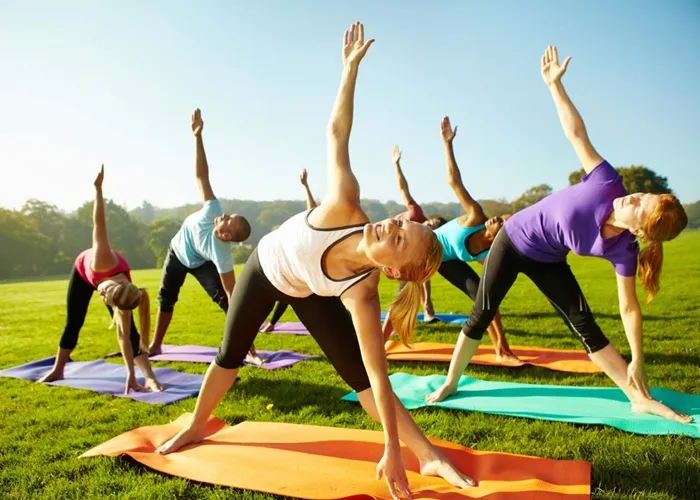very often I write to you about sports motivation for active lifestyle, physical education and sports! But people who do not always ask one question, why? why do I need it?
I'll try to reveal the benefits from a medical point of view:
About how sports affects human health, says and written many articles, scientific research, even dissertations. We will try to arrange all this information in a short and accessible form. So, sport is good for health for the following reasons:
The musculoskeletal system is strengthened: the volume and strength of muscles increase, the bones of the skeleton become more resistant to stresses. In the process of training in the gym or during the running, swimming, cycling, oxygen supply of muscles improves, blood capillaries are activated, which are not involved at rest - more, new blood vessels are formed. Under the influence of regular training, the chemical composition of muscle tissues changes: they increase the content of energy substances, which leads to intensive metabolic processes, the synthesis of proteins and the formation of new cells. Systematic training in physical culture prevents the development of such diseases of the organs of support and movement, like osteochondrosis, herniated discs, arthrosis, atherosclerosis, osteoporosis.
The nervous system is strengthened and developed. This is due to increased dexterity, speed and better coordination of movements. Sports activities contribute to the constant formation of new conditioned reflexes, which are fixed and folded into consecutive rows. The body acquires the ability to adapt to more complex stresses and perform exercises in a more efficient and economical way to achieve the desired results. The speed of the nervous processes increases: the brain learns to respond more quickly to stimuli and make the right decisions.
Improves the work of the cardiovascular system. The effect of sport on the human body is expressed in increasing the endurance of the heart and blood vessels. Training makes all organs work in an intensive mode. Muscles under stress require increased blood supply, which causes the heart to pump more volume of oxygenated blood per unit time. At rest, the heart pushes about 5 liters of blood into the aorta in one minute: during training this amount increases to 10 and 20 liters. The heart and blood vessels of a sports person quickly get used to the stresses and recover as quickly after them.
Improves the work of the respiratory system. With physical exertion, due to the increased need for tissues and organs in oxygen, breathing becomes deeper and more intense. The amount of air passing through the respiratory system per minute increases from 8 liters at rest to 100 liters when running, swimming, or exercising in the gym. Increases the vital capacity of the lungs.
Increases immunity and blood composition improves. In regularly trained people, the number of red blood cells increases from 5 million in one cubic millimeter to 6 million. The level of lymphocytes (white blood cells) is also increasing, the task of which is to neutralize the harmful factors entering the body. This is a direct proof that sports strengthen defenses - the ability to withstand adverse environmental conditions. Physically active people get sick less often, and if they are exposed to the aggression of bacteria or viruses, they cope with it much faster.
Improves metabolism. The trained organism better regulates the content of sugar and other substances in the blood.
The attitude to life changes. Physically active people are more cheerful, less prone to sudden changes in mood, irritability, depression and neuroses